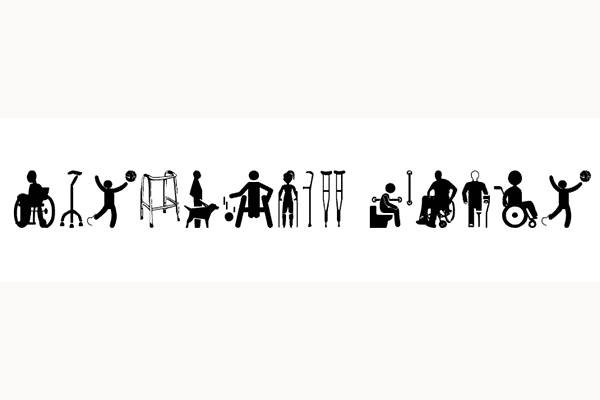Over summer, I spent six weeks in a wheelchair. It was a trying time — everyone else was flaunting their hot, able bodies around Sydney shores, while I grew paler and saggier, emotionally sustained only by the tiny thrills of karting around my kitchen in my grandmother’s motorised pensioner scooter. While everyone else soaked up artisan coffees from very cool, very urban, clearly very Instagram-worthy cafes, I became extra-hyped on my one instant Moccona for the day that coursed through my thin-blooded body at a nauseating pace.
In hindsight, spending six weeks completely housebound was incidental training for the limitations of physical distancing in 2020. I’d hate to flex, but I’ve been preparing for this moment for months.
The coronavirus lockdown has been an interesting time for people with disabilities. For many, it’s been a punch in the delicate guts — a time of feeling particularly overlooked and disposable (yeah by the way, that time people hoarded vital medications was not cool!) For some, transitioning to a life online with disrupted audio and blurry screens has been seriously disadvantageous and, for others, life at a distance has worsened pre-existing conditions, especially mental health. It is virtually impossible to capture the range of experiences for people with disabilities in this time, but what I can offer is my experience. In a word: I have bloody loved it.
Digitally streamed concerts, plays and seminars have torn down ableist barriers and made attendance possible. Mosh pits are death traps (fight me), and COVID-19 has made concert attendance a possibility for me, and others, who can’t do crowds. I’ve been able to watch the Sydney Theatre Company’s live table reads of plays without first having to check for disabled parking, or mentally prepare myself for the long walk down to the ‘Bar at the End of the Wharf.’
Avoiding the logistics of travel has been mint. With uni online, I have not spent a single morsel of my mulla on an Uber between Redfern Station and the Social Sciences Building, or on tolls and petrol driving to campus. Being able to avoid well-meaning stares as I limp from class to class has also been welcomed, and should I lock a hip or slip a rib ‘walking’ between classes, bed and the next meeting is about a metre away.
Now my internships are online, I have been able to fearlessly network with representatives from various organisations without concern that my unexplained ring splints make me look like an untrustworthy punk. In fact, the general concealment of my splints, braces and taping has helped me avoid a lot of awkward conversations (“what did you do? Sports injury?” – “yeah nah, all my joints are just structurally gelatinous” – “… okay”). This semester is the first in three years that I haven’t dipped into my special considerations. I think that’s telling.
You might not have realised, but your experiences in lockdown have probably made it easier for you to sympathise with people like me. For those with disabilities, the walls between public and private life are porous. Few would have experienced the awkwardness of explaining the daily struggle to brush your own hair in a professional context, but zooming from home has put cracks in your walls too. Remember that time you had to apologise for Zoom call interruptions caused by your cat, or your kids, or your obnoxious choice of wallpaper? Those cute little snippets where your ‘at home’ identity had been exposed scrapes the surface of the blurry lines between public and private conversation commonly experienced by those with visible disabilities.
Feeling a bit stir-crazy stuck at home is another taster of the experience of being someone with mobility issues. You lying in bed all day, binge watching Sex Education and dreaming about being able to go to a bar, is you reliving my summer break. However, when I’m housebound with crippling joint pain, I don’t have ten to fifteen B-grade celebrities from Channel 10 condescendingly reminding me that ‘times are tough.’ I’ll take that as a win.
The fact that my quality of life and ability to participate in public spaces has improved during a time when most people are feeling severely limited, is an indictment on our profit-driven way of life. Our fast-paced lifestyle, the need for hands-on, in-person experience and the usual lack of accessible options is uniquely burdensome for people with disabilities.This time of lockdown begs the question: why are we expected to keep up rather than help establish the pace?
As restrictions ease for some, how do we prevent accessibility restrictions from rising up again?





